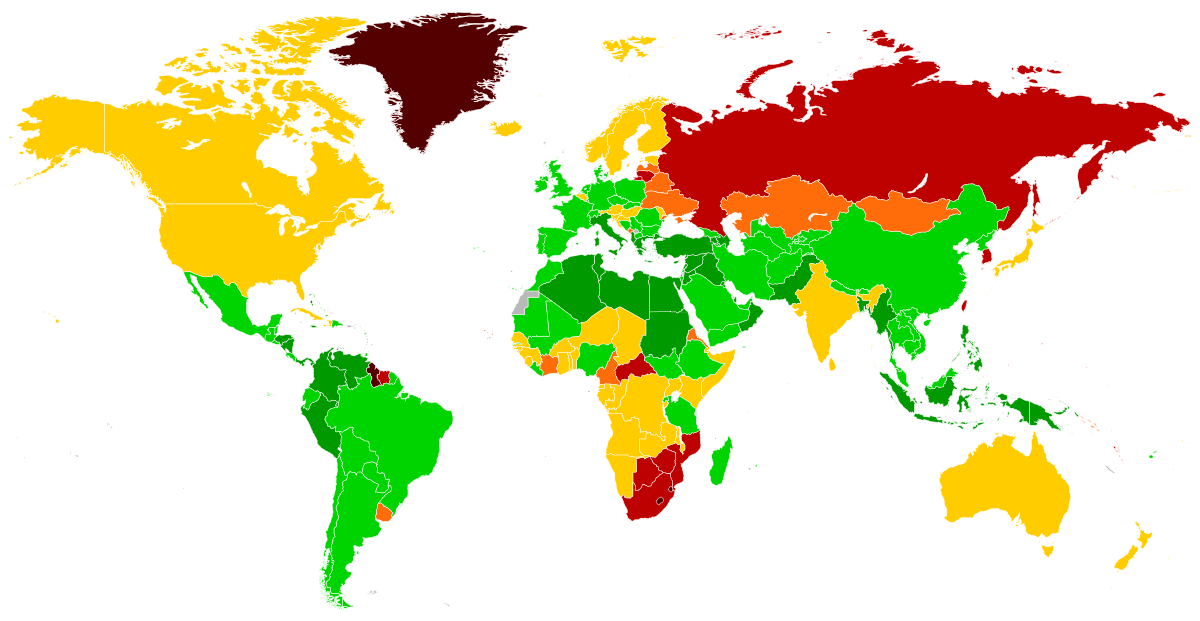Telegraph.co.uk
Andrew M Brown
November 12th, 2010
---
The poor Japanese man who committed suicide live on the internet is one among tens of thousands of people in that country who have killed themselves this year. In 2009, 32,845 Japanese people killed themselves. The figure has stayed above the 30,000 threshold for 12 straight years and there’s no sign of a change. It works out at 88 suicides every single day. It’s a lot: Japan has one of the highest rates in the world and it’s much higher than here in Britain, for example.
My own feeling is that this epidemic of self-destruction is related to questions of status, shame and self-esteem and to Japan’s competitive culture. In an uncertain economic climate a lot of Japanese males – and more than 70 per cent of the deaths are in males – are longer confident of being able to stay in a decent job and support their families for their working lives. To make matters worse, they may be ensnared by sarakin-jigoku or “loan shark hell”, which is what happens when a person gets tied up in ever-increasing debts to a moneylender or sarakin.
This is a lethal combination: personal humiliation plus the comparative acceptability of suicide in Japanese culture. Shame is a major driver of suicide. South Korea also has a very high rate of suicide and that country has a comparable social structure where shame motivates citizens.
To put it in general terms, suicide is a catastrophic and total response to a feeling of not measuring up, a sense that you have let yourself and other people down, that you’ve not lived up to expectations. You just want to bury yourself in the ground. Japanese suicides are not, as a rule, “cries for help”. The methods used tend to be the violent self-obliterations usually favoured by men, such as falling beneath the wheels of moving trains.
So, in a culture where fulfilling the expectations of wider society is especially valued, you can see how the shocking act of killing oneself might seem the only “honourable” way out. The would-be suicide cannot see at the time that killing him- or herself is applying a permanent solution to a problem that may only be temporary.
http://blogs.telegraph.co.uk/news/andrewmcfbrown/100063456/why-do-so-many-japanese-people-kill-themselves/
Andrew M Brown
November 12th, 2010
---
The poor Japanese man who committed suicide live on the internet is one among tens of thousands of people in that country who have killed themselves this year. In 2009, 32,845 Japanese people killed themselves. The figure has stayed above the 30,000 threshold for 12 straight years and there’s no sign of a change. It works out at 88 suicides every single day. It’s a lot: Japan has one of the highest rates in the world and it’s much higher than here in Britain, for example.
My own feeling is that this epidemic of self-destruction is related to questions of status, shame and self-esteem and to Japan’s competitive culture. In an uncertain economic climate a lot of Japanese males – and more than 70 per cent of the deaths are in males – are longer confident of being able to stay in a decent job and support their families for their working lives. To make matters worse, they may be ensnared by sarakin-jigoku or “loan shark hell”, which is what happens when a person gets tied up in ever-increasing debts to a moneylender or sarakin.
This is a lethal combination: personal humiliation plus the comparative acceptability of suicide in Japanese culture. Shame is a major driver of suicide. South Korea also has a very high rate of suicide and that country has a comparable social structure where shame motivates citizens.
To put it in general terms, suicide is a catastrophic and total response to a feeling of not measuring up, a sense that you have let yourself and other people down, that you’ve not lived up to expectations. You just want to bury yourself in the ground. Japanese suicides are not, as a rule, “cries for help”. The methods used tend to be the violent self-obliterations usually favoured by men, such as falling beneath the wheels of moving trains.
So, in a culture where fulfilling the expectations of wider society is especially valued, you can see how the shocking act of killing oneself might seem the only “honourable” way out. The would-be suicide cannot see at the time that killing him- or herself is applying a permanent solution to a problem that may only be temporary.
http://blogs.telegraph.co.uk/news/andrewmcfbrown/100063456/why-do-so-many-japanese-people-kill-themselves/



